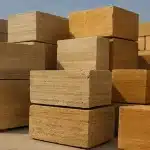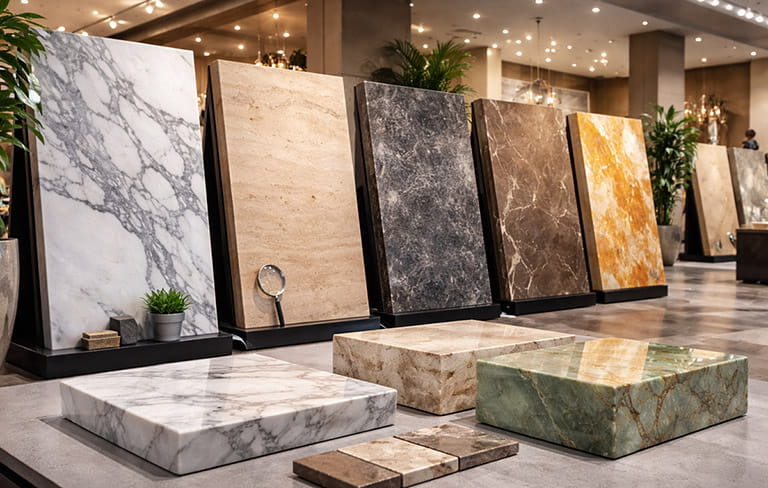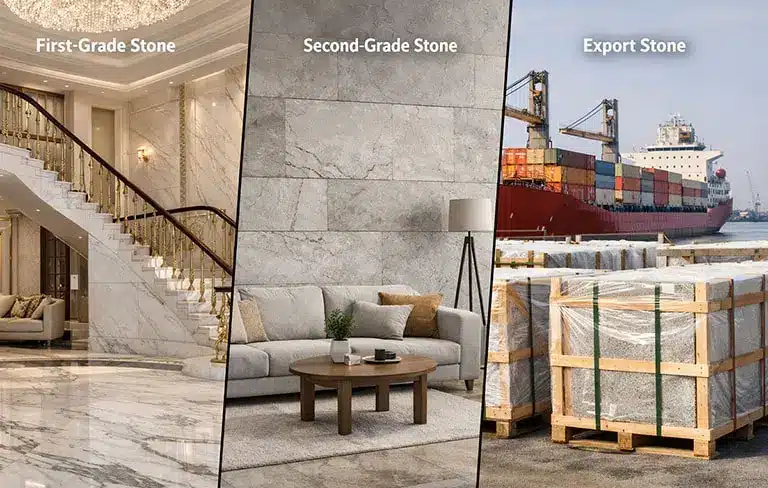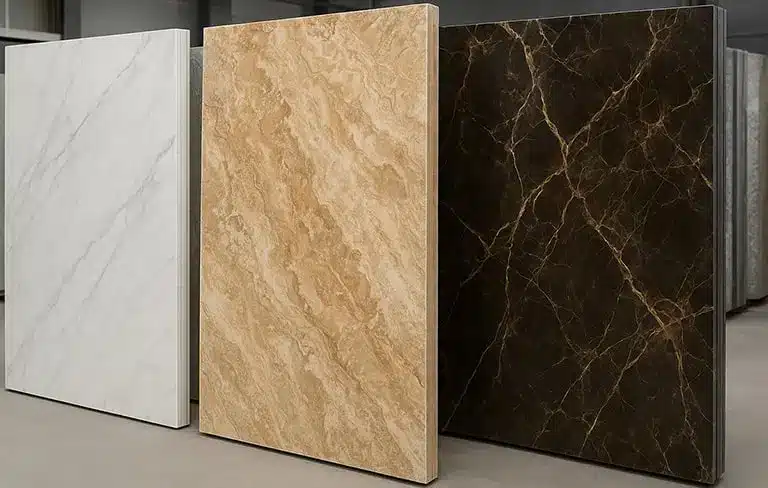
Advantages and Disadvantages of Travertine Stone: A Smart Choice or a Design Challenge?
2025-04-26
The Role of Stone in Interior Design
2025-07-27Types of Stones for Terraces and Balconies
Terraces and balconies, as exterior parts of a building, play a vital role in its overall aesthetics and functionality. Choosing the right type of stone for these spaces can significantly affect their durability, beauty, and ease of use. In this article, we explore the best types of stones suitable for terraces and balconies, their features, benefits, and key selection tips.
Importance of Choosing the Right Stone
Since terraces and balconies are constantly exposed to weather conditions such as rain, direct sunlight, and temperature fluctuations, selecting stones with specific qualities is essential. The right choice not only enhances the visual appeal and durability of these spaces but also helps reduce future repair and maintenance costs.
Criteria for Choosing Balcony and Terrace Stones
When selecting the ideal stone, consider the following factors:
- Weather Resistance: Stones must endure rain, sunlight, and temperature variations without cracking, eroding, or fading.
- Proper Thickness: To handle weight and pressure, stones should have sufficient thickness—generally, at least 2 cm for flooring applications.
- Low Water Absorption: Stones with low water absorption are less prone to damage caused by moisture and temperature changes.
- UV Resistance: Choose stones that maintain their color and appearance under prolonged sun exposure.
- Anti-Slip Surface: Textured or honed stones are safer in wet conditions than polished, slippery ones.
- Ease of Cleaning: Outdoor spaces accumulate dust and dirt, so the stone surface should be easy to wash and maintain.
Types of Suitable Stones for Terraces and Balconies
- Granite
Granite is one of the most durable and weather-resistant natural stones, making it ideal for outdoor use. It withstands dust, moisture, and temperature changes exceptionally well. Although granite may fade under direct sunlight, selecting appropriate colors and finishes can help. Standard thickness is around 1.5 cm.
- Travertine
Travertine is a popular and affordable limestone-based stone known for its beautiful patterns and porous structure. It’s highly resistant to weathering and does not expand or contract under temperature changes. Its low water absorption and ease of cleaning make it a practical choice for terraces and balconies.
- Marble
Marble offers an elegant and luxurious appearance, making it a favorite for upscale exterior designs. However, it is softer than granite and requires more maintenance. It resists dust, moisture, and wear, but because of its softness, regular care may be necessary in outdoor settings.
- Basalt
Basalt is a volcanic stone that shares granite’s durability and is highly resistant to thermal changes. It is lightweight, thermally insulating, and has excellent bonding properties, making it ideal for outdoor flooring. Its affordability further increases its popularity in construction projects.
Comparison and Selection Guide
To choose the right stone for your terrace or balcony, compare each option based on your project’s specific needs:
- Durability and weather resistance: Opt for granite or basalt.
- Aesthetic variety and natural patterns: Choose marble or travertine.
Buying High-Quality, Cost-Effective Stone
Purchasing from experienced and reputable suppliers is key to getting quality stones at a reasonable price. Buying directly from major providers like Iran Basalt can help you access durable materials with expert guidance. Online ordering and consultation services can also simplify the buying process.
Conclusion
Choosing the right stone for your terrace or balcony directly impacts the durability, aesthetics, and performance of these outdoor spaces. By considering essential factors such as weather resistance, thickness, water absorption, and appearance, you can make an informed and cost-effective choice. With expert advice and quality materials from trusted suppliers, you can fully enjoy your building’s outdoor areas.





1 Comment
I really like studying and I conceive this website got some really useful stuff on it! .